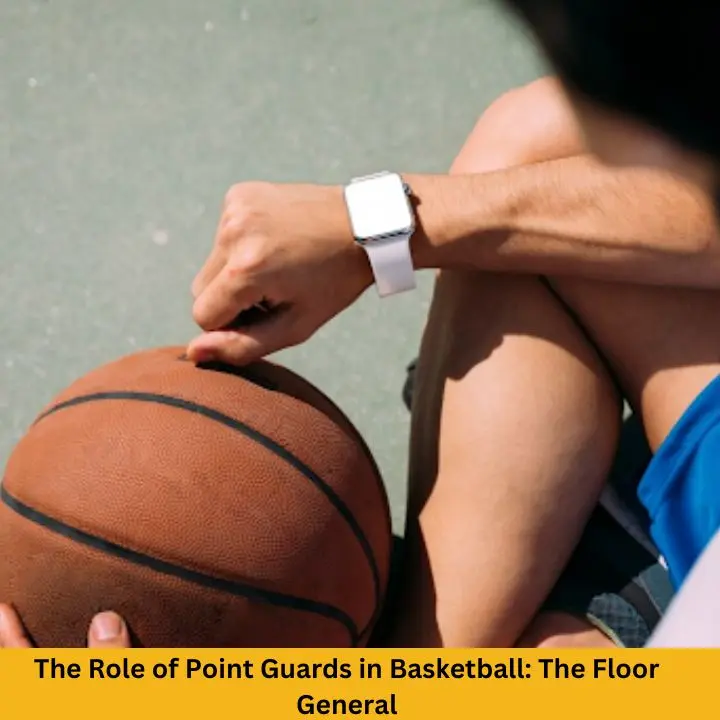The Role of Point Guards in Basketball: The Floor General

Basketball is not just about scoring or defense, but about who manages the game; that is where a point guard comes in. Often referred to as the “floor general,” the point guard is expected to initiate the play, pass the ball, and control the tempo. They are essential for any formation because a team’s offense can fail without them.
Leadership on the Court
Point guards are skilled performers and team leaders who carry out all the initial plans for an attack and defense. Their leadership begins and ends with talking, whether signaling to their teammates that they are passing the ball, calling for their teammates to follow a play, or studying the opposing teams’ defenses to figure out where their teammates should be. Their ability to read the game and make split-second decisions is a crucial factor often analyzed by experts and reflected in online betting site, where the performance of key players like point guards can influence the odds. This decision-making ensures that the team is always in order, even though some incidents may appear random.
Ball Distribution
The essence of any point guard is how they spread the ball around the field. They make fast decisions on the field, such as reading defenses, estimating movements, and passing to the open player. It’s about creating opportunities, which platforms such as Melbet Instagram Bangladesh frequently highlight when showcasing how point guards shape the flow of the game and open up possibilities for their teammates. Crucial elements of ball distribution include:
- When penetrating a defensive wall, the ball must find the target wildly.
- Timing means delivering the ball at the right time when the play can be executed to the best effect.
- Court vision differs from seeing the entire court and waiting for a player to be in a particular part of the floor.
These abilities raise the person and person’s performance, which is why the award is priceless.
Controlling the Tempo of the Game
A point guard’s most subtle power is dictating the game’s pace. Depending on the situation, the opponent, or the game strategy, they can decide whether their team increases or decreases the tempo. In most cases, this ability determines how effective a team will be.
Game Tempo: Fast Breaks
When the point guard leads a fast break, it indicates that all players will be moving toward the opponent’s basket. This stuns defenders because the rate of change is so fast that it leads to scoring chances. A quick break needs to be done effectively in a team where everyone has to make decisions, such as whether to pass, dribble, or shoot.
A point guard in fast breaks is not only an attacker but a judge of the defense. Is it too soon to pull defenders, or are they too susceptible to leave the perimeter? Each defensive player needs to be aware of their position on the floor, and the point guard must capitalize on this by scoring as many points as possible while the defenders are out of position.
Game Tempo: Slowing It Down
However, when the tempo must be reduced, the point guard becomes the team’s conductor and directs his teammates to execute set plays. Some may flick teammates to force a reset on the offense. The game is then slowed down to allow their team time to recover, be it to conserve energy or to chip away at a defense.
Slowing the game also puts pressure on the opponents, puts them out of the rhythm, and can create frustration. The point guard’s ability to execute this switch can mean a significant difference between a team forcing a shot and one setting up a play. This combination of aggression and waiting is the characteristic feature of real floor generals.
Defense Leadership
It is not just a point guard’s job to score – often, they’re the primary defender. The best in terms of the speed and orientation on the court, they also dictate the pace of how the entire team should defend. An excellent defensive point guard is usually in charge of making several decisions that would create turnovers and restrict the ability of the other team to score. Critical aspects of a point guard’s defensive leadership include:
- Anticipation: Predicting the offense and catching balls before they are thrown.
- On-ball pressure: Compelling the opposing team’s point guard to lose concentration during a game.
- Help defense: Covering for your colleagues when they have moved to the wrong section on the field.
That’s why point guards are so valuable; they can easily transition from defense to offense, making defense a fast offense.
Decision-Making Skills
The most valuable asset of a point guard is his decision-making skills. Each action, ranging from a pass to an alteration of a play, requires split-second decisions on the court. A great point guard must discern in real time what is best for his team to achieve. This requires a basketball brain and instinct to know when to do it.
Point guards also need to understand how much risk is acceptable. Are they fast-breaking, looking to score as soon as possible, or are they rebounding and waiting for the other team to set their formation? The ability to acknowledge and respond to such moments will dramatically shift a game’s course as necessary. It is truly a delicate line between aggression and waiting, and it is a line that only the best point guards understand.
Final Thoughts
The point guard is uniquely positioned on the basketball team since he unites leadership, planning, and action. Their decisions and ability to dictate the pace and maintain possession distinguish good teams from great ones. The floor general is the engine that makes everything on the team move as planned.




